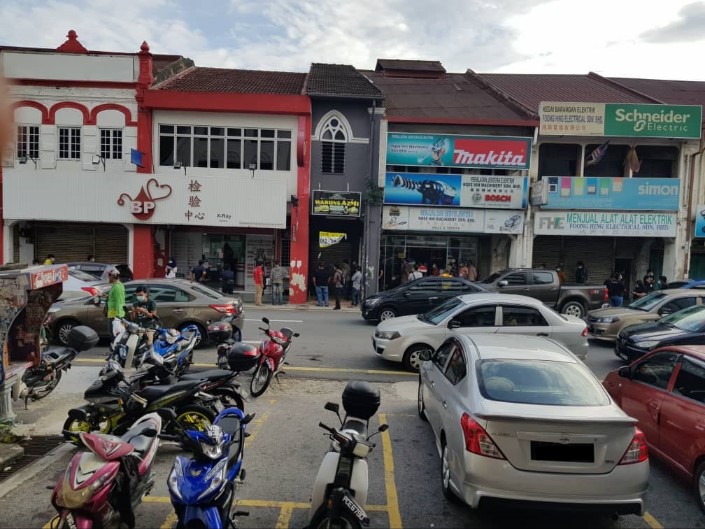KUALA LUMPUR, May 12 — A doctors group said BP Healthcare Group has recruited it to help swab workers for coronavirus screenings, amid long queues and reported weeks’ long delay of test results.
Dr Jaya Chandran Perumal, president of Pertubuhan Generasi Baru Sihat Malaysia (PGBSM), said his Cyberjaya-based non-governmental organisation currently has 50 doctors who have been trained by the Ministry of Health (MOH) on Covid-19 screening, while more doctors are expected to come on board once they complete MOH’s coronavirus sampling training scheduled next week.
“We want to help the nation by doing the tests as soon as possible,” Dr Jaya told CodeBlue yesterday.
PGBSM aims to deploy 350 doctors nationwide to take nose and throat samples from workers at either drive-through BP outlets or at factories for laboratory company BP’s PCR tests.
“We offered ourselves — that’s the engagement between Pertubuhan and BP,” Dr Jaya said, declining to reveal how much BP was paying doctors to swab each patient.
He added that the doctors working with laboratory company BP in screening workers for Covid-19 are from Klinik Alam Medic in Jenjarom, Selangor.
Dr Jaya said the Social Security Organisation (Socso) wants to do 100,000 tests in a month, which means that 3,000 tests must be done daily.
“One doctor, let’s say, can do 100 tests. So we need at least 30 doctors a day,” he said, adding that not all doctors could work every day.
The Social Security Organisation (Socso) has come under fire from health care providers and the Malaysian Trades Union Congress for authorising only one service provider — BP — to screen an estimated over two million documented migrant workers in the country for coronavirus with the PCR tests.
Malaysiakini reported last Friday companies’ complaints about the delay of BP test results for two weeks, as well as the cancellation of appointments because of a shortage of test kits. Tests were even reportedly done along a walkway outside the premises of BP’s Kepong outlet.
Socso then said Saturday it would recruit more service providers for its Prihatin Screening Programme (PSP) that uses the gold-standard PCR tests, while cancelling rapid antibody testing at private general practitioner (GP) clinics based on MOH’s advice. Socso also noted that Covid-19 tests are only compulsory for foreign workers in the construction sector or those working in coronavirus red zones.
Medical Practitioners Coalition Association of Malaysia (MPCAM) president Dr Raj Kumar Maharajah said GPs could choose to help BP’s testing as a corporate social responsibility (CSR) project for Socso during the Covid-19 pandemic, but MPCAM felt this was a sacrifice by doctors who would have to leave their clinics to do on-site testing.
“The risks of getting infected and the risks of being exposed and being quarantined for 14 days is there as well,” he told CodeBlue.
“However we leave it up to doctors to decide for themselves. Others who feel that the amount is unreasonable can choose to do the screening for self-paying customers at market rate at their clinics or see other non-Covid cases in their clinics.”
The Malaysian Medical Association (MMA) will not join the BP screening either.
“It’s a national crisis — quality of sampling, safety of patient and doctor, quality in results, doffing should be emphasised. Regular audit on the entire process should be done,” MMA president Dr N. Ganabaskaran said.
The Federation of Private Medical Practitioners’ Associations, Malaysia (FPMPAM), another doctors group, also refused to participate in the BP testing.
“This is really quite an improper and unprofessional approach to a public health problem. The FPMPAM will not support this,” FPMPAM president Dr Steven Chow told CodeBlue.
Health director-general Dr Noor Hisham Abdullah told the press yesterday that MOH was sticking to its targeted testing approach, pointing out that even if widespread testing of workers is done once before they return to work, they still remain exposed to Covid-19 infection from their community.








